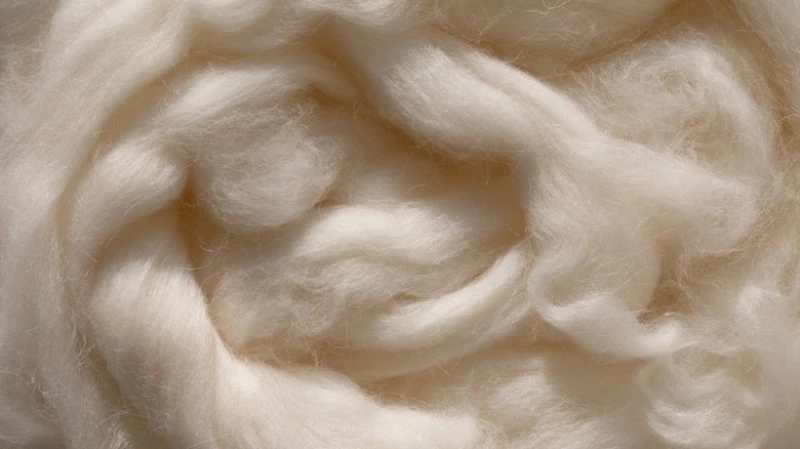Getting a good night's sleep is crucial for overall well-being, and the right sleeping setup is key to success. Factors like air quality, a clean home, a comfy mattress, and the perfect pillow all contribute to a good night's rest. While there are numerous pillow options available, one type that stands out is wool pillows.
Wool pillows, often overlooked, have a long history and offer unique benefits. Wool has been used in textiles for thousands of years, and while pure wool products are less common today due to the rise of synthetic materials, wool pillows remain a standout choice. These pillows, filled with wool down from sheep, provide impressive performance and durability compared to traditional pillows that need frequent replacement.
Benefits of Wool Pillows

Wool, known for its role in keeping sheep warm and dry, offers numerous benefits as a textile. It is highly breathable, possesses antimicrobial properties, and is incredibly durable with proper care. Wool pillows are an excellent choice for allergy sufferers due to the textile's breathability and antimicrobial nature. This makes wool pillows inhospitable to bacteria, moisture, and dust mites, which thrive on synthetic or lower-quality fibers found in conventional pillows.
Benefits of Wool Pillows
When it comes to choosing bedding materials, wool pillows are gaining popularity as a sustainable and eco-friendly option. Unlike synthetic fibers, wool is a climate-friendly alternative that uses 18% less energy than polyester and 70% less water than cotton. One of the key benefits of wool pillows is that they are free from synthetic chemicals. Many conventional pillows are manufactured to be fire resistant, but wool has naturally fire-retardant properties, making it a safer choice. Additionally, wool pillows can help regulate body temperature, making them ideal for those who struggle to stay cool while sleeping. Caring for wool pillows is also easy - simply dump the wool filling from the case onto a sheet outside on a sunny day to freshen and whiten the fibers.
Drawbacks to Consider

While wool pillows offer many advantages, there are some drawbacks to consider. Individuals who are sensitive to smell may find the natural odor of wool pillows off-putting, especially during the initial months of use. The odors are harmless and will dissipate over time, but placing the pillow in the sun can help speed up the deodorization process.
When it comes to wool pillows, one important factor to consider is their price. These pillows are crafted from natural fibers that are often sourced from high-quality wool producers, which can result in a higher price tag compared to conventional pillows. Additionally, wool pillows are not as mainstream as other types of pillows, leading to less market demand and further contributing to their elevated cost. Depending on the brand and specific certifications you seek, such as a 100% organic pillowcase or a unique design, prices for wool pillows typically range from $60 to $130. Despite the initial investment, wool pillows can prove to be a wise choice in the long run. With proper maintenance, they have the potential to last for years, potentially offsetting the cost of frequently replacing synthetic or cotton pillows every few years.







